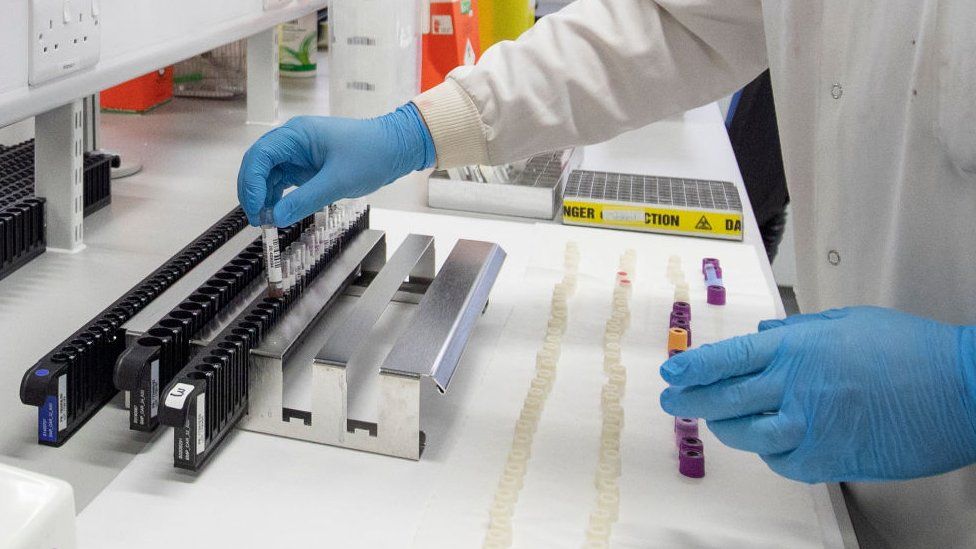‘Preparedness To Prevent And Treat Sepsis Is Essential To Save Lives’
At the occasion of World Sepsis Day on September 13th, the Global Sepsis Alliance reminds governments, health authorities, professionals, and all stakeholders that sepsis must be treated as a global health emergency.
The COVID-19 pandemic has shown that infectious diseases – whether communicable or not – continue to represent a global threat, and that sepsis prevention and treatment are part of the solution.
“The 2020 World Sepsis Day occurs at a time when mankind faces one of the greatest pandemics of recent times. Severe infections with COVID-19 are in fact viral sepsis – which is often not recognized”, says GSA President, Prof. Konrad Reinhart, “Severely ill COVID-19 patients and those affected by sepsis from other pathogens — such as bacteria, other viruses, fungi, or parasites — are indistinguishable on clinical grounds.”
In the first six months of the pandemic, there were 17.3 million confirmed COVID-19 infections and 673,833 reported deaths1, according to the Coronavirus Resource Centre of the John Hopkins University.
Yet, in the same six months in 2017 there were close to 25 million ‘non-COVID’ sepsis cases resulting in an estimated 5.5 million deaths, as reported in a major recent study published in The Lancet2. Beside causing death, COVID-19 also contributes to the enormous burden of sepsis through the long-term effects of COVID-19 induced sepsis.
The long-term consequences of sepsis are already well-known. Up to 50% of sepsis survivors suffer long-term physical, cognitive, and phycological sequelae. Critically ill COVID-19 patients have similar long-term effects such as fatigue, muscle weakness, loss of sense of smell, and concentration difficulties and according to rehabilitation requirements.
“In such a historical moment where governments are expected to strengthen national health systems, we demand that they foster preparedness to tackle life-threatening infectious diseases, prevent and treat sepsis.”- continued Prof. Reinhart, “Healthcare systems which can adequately care for patients with sepsis are also more likely to adequately respond to the COVID-19 pandemic and future emerging infections.”
Specific therapies for COVID-19 are yet to be found, but the demonstrated success of corticosteroids suggests that, as for sepsis, modulating the immune system’s response improves survival in COVID-19. “There is no approved medicine to cure sepsis though” – added Prof. Niranjan “Tex” Kissoon, Vice President of the Global Sepsis Alliance, “Early administration of appropriate antimicrobials helps treatment in case of bacterial infections, but above all prevention and early recognition are key. This is why awareness, training of medical professionals, and funds for research on sepsis are essential to save lives.”
Sepsis is a devastating condition resulting from the dysregulated immune system response to infections, which leads to organ failure and death. Each year sepsis affects close to 50 million people globally of which more than 40% are children under age 5. While the burden is concentrated in low- and middle-income countries, sepsis remains also a leading cause of death in high-income countries. Overall, sepsis causes or contributes to over 11 million death each year. However, the majority of deaths due to sepsis are preventable.
On her part, the Vice-executive director, African Sepsis Alliance (ASA). Board member, Global Sepsis Alliance (GSA) and Coordinator, Sepsis Research Group (SIDOK), Aminu Kano Teaching Hospital, AKTH, Kano, Hajiya Halima Salisu Kabara (RN, MPA, PhD, FWACN) said, more needs to be done on advocacy, patient safety issues, and families need to be involved in the fight against Sepsis.
“Decision makers and heads of governments need to be brought on board to develop a National Action Plans for Nigeria as well as other African countries as 85% of people affected live in Low & Middle Income Countries (LMICs)”.
“Sepsis can be seen as a mirror of the quality of healthcare as the rate of Sepsis is a very good indicator of health systems. Despite it’s remarkable incidence, Sepsis is practically unknown to the public.It is an Emergency condition. Prompt recognition of the condition followed by administration of intravenous fluid & antibiotics are key to survival”, she stated.
“Primary aims of treatment are to treat the infection, sustain the vital organs, and prevent a drop in blood pressure, and to implement appropriate infection control and prevention measures for communicable diseases”, Kabara concluded.




